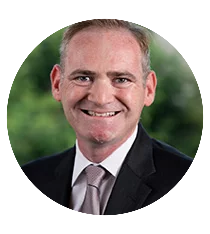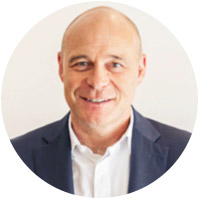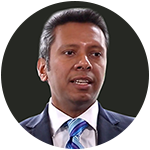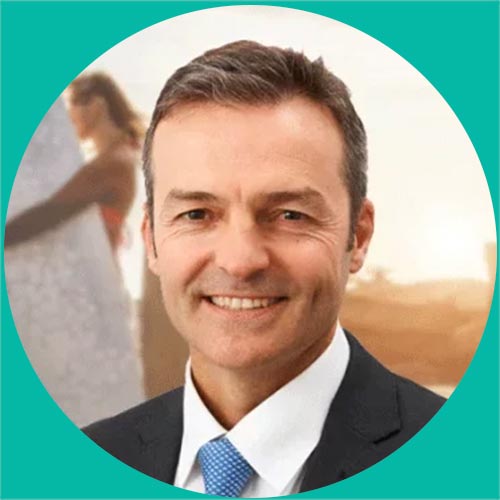How not to waste money on marketing
The text below is an edited transcript of the above video.
Rod Solar:
So one of the things, that we encounter a lot is folks who come to us after they’ve initiated their practice, is they’ve reached a plateau and they’re in a problem situation. They’re stuck. A big part of that is because they’ve spent some resources in a variety of different ways and they haven’t gotten the value for it. Can you tell us a little bit about some of what you’ve heard, because you speak to these people every day?
Laura Livesey:
Yeah. Probably the most common thing that I get and come across at conferences and when I’m talking with people is, well, marketing doesn’t work or this tactic doesn’t work or paid traffic doesn’t work, i.e. Google AdWords. I think that if we take a step back and look at that, what they’re really saying is that they’ve tried something that somebody offered and we didn’t get results with it. They’re throwing out the baby with the bath water.
So I think in terms of looking at waste in marketing, it’s monumental. I think that there’s so much of marketing that just doesn’t work. And actually, we believe that most marketing out there is quite bad, poorly executed and not professionally done.
And so I think that the number one thing that we see in terms of wasting money – logos.
It’s not all about the shiny logo
So spending an inordinate amount of money on a logo and brand before having any idea of what service somebody is providing or an understanding of who they are in the market. Any understanding of the competition that’s in the market and just jumping right in, getting a really cool logo, spending 10,000 pounds or even a thousand pounds is too much if you don’t know who you are and what you’re offering, feeling like that logo is going to basically do it for you; sell you.
Rod:
– Pro tip, it won’t.
Laura:
Yes. I mean, at the beginning a box check logo, something that looks professional enough, but really don’t spend your money on that. Another thing not to do is invest in a ton of facilities. I get surgeons that come to me and say: “Okay. Literally tomorrow or next week, I’m going to start to spend 5,000 pounds a month or 10,000 pounds a month on a facility. I need your help now.”
And the reality is that marketing is not a quick win. If you’re doing it right, you build up a foundation. There are assets you have to put in place. There is an understanding of what you are offering in the market that doesn’t… You have to really think about it and work with a marketing partner to figure it out.
And so to have a facility too soon, the longer you can hold back, maybe do something part-time, have a side gig or a “side hustle”, as many people say, and really just figure out… It takes a while to figure these things out, test things, throw things up against the wall, figure out who you are and who you want to attract. Really what do you want to get out of your life? This is really about you and your lifestyle.
So don’t jump into a facility until you have a plan and you have a website operating and you’re getting leads. You actually have leads coming to you. Then you know you have, okay, we’ve started to figure this out. We have some revenue coming in. Okay, we can take the risk. And it is a risk to have a facility.
Ditch the random acts of marketing
Other things that people come to us with is, yes, they will try a tactic. So you name it. They’ve tried it. It’s offline. Often it’ll be magazine, they’ll put money into… When you open a clinic, people start phoning you every day. So they’ll say: “can you advertise in X, Y, Z? So can you advertise in this online directory? Can you advertise in my local rag, my local newspaper, because you know of X, Y, and Z”. So they’ll spend a thousand pounds. And it may not be a lot of money, but it adds up. So it’s 500 pounds here, a thousand pounds here. And I tried this and really I got one lead or two leads or five leads. So there’s-
Rod:
Or you weren’t able to measure it at all?
Laura:
Yeah. True. Yeah, exactly. I think it’s working. I’m getting some leads, but who knows? Chances are those are coming from referrals probably. And it wasn’t the actual newspaper itself. So there’s a lot of offline money wasted. And then online as well. Online isn’t a magic bullet either. Doing Google AdWords, you can’t really do Google AdWords on its own as a tactic. It’s not something that is, again, magical and will drive leads. If you don’t have a clear message, if you don’t have a page on your website that is specifically set up to turn a browser into a conversion for a first appointment…
Not even for what you sell, but just the first step of the sales process, which is to talk to somebody, if you don’t have that process set up, it’s probably not going to work. And if it does, you’re probably just lucky and maybe in a non-competitive market, and maybe you just happen to offer something that everybody wants and there was an unfilled need in the market. But that’s really rare. So I think those are probably the most common ones that I get in terms of things that people waste money on.
Rod:
Yeah. I’d only add to that. Many times doctors are aiming to leverage people that they have on their staff. And I mean, obviously you want to do that. That makes sense. You employ people. You want them to be busy. And in the initial days, the phone’s not ringing. Not a lot of patients are walking through the door. So you say, “Okay, well, look, you have a Facebook account, you do Instagram marketing, market my practice.” Right?
And news flash, that one in a million chance, that’s going to work, because what you do is a professional discipline. So just like I wouldn’t go to a local healer to help me remove my glasses through their healing eye exercises, I wouldn’t go to my secretary, as good as they are at being secretarial, to manage my marketing campaign.
This is an important thing to understand. Marketing is a professional discipline. And we’re not just saying that because we’re marketers and we need to be respected. No, the key thing is you have to understand that just like there are poor doctors… I can say that, right? There are some poor doctors. All doctors are not created equal. There are some really, really good consultants out there. There are folks who really, really keep up, there’s folks who really, really try, really care about their patients and do the very, very best by them. And there’s those who don’t do that so much. Just like that, there are marketers of all different breeds, of all different trainings, of all different schools and those who will offer you things that even they might not even believe are going to work, but they need to get you involved with them and want to move forward to effectively capitalize on your naivety.
So the key thing here is to really define what the principles are behind the marketing that does work, versus the marketing that does not work.
So I’ll begin with one and then maybe you can chime in with a few more. So number one, many people ask us, “Do you think it’s important for us to consider digital marketing?” Okay, let me be really, really clear.
All marketing is digital marketing
20 years ago, digital marketing was something that was considered as an offshoot. It was like a style or a potential branch of marketing. Today, doesn’t really matter what business you’re in because even the guy who opens up the pizza parlor down the street is going to have a website. All marketing is digital marketing. So I need to put that out there really, really clearly. All marketing is digital marketing. Because even if you put out newspaper ads, most of the time you’re going to try to get those people to come to your website.
So your website matters. Now, websites are a lot of what people imagine digital marketing to be. But digital marketing is a massive scope of options and tactics, which include video marketing on YouTube, social media marketing, email marketing, conversion optimization on a website, testing, website design and development, SMS. I mean, there’s loads and loads of loads of things that digital marketing encompasses.
And the beauty of digital marketing versus traditional marketing that you’ve alluded to already, is the fact that you can measure it, right?
So with digital marketing, you can precisely know how many leads you’re generating, as opposed to putting an ad in the newspaper, putting your phone number in that ad, and basically gauging it on the basis of whether or not the phone rings or not.
You don’t really know whether or not that ad is pulling from that magazine or that ad is pulling from that newspaper, or that ad is pulling from the yellow pages. You just don’t really know unless you’re highly sophisticated and set up different phone numbers for all this stuff.
Laura:
So again, much less chance of wasting money.
Rod:
Absolutely. That’s the key thing. One of the things about marketing is, those who win are who do it consistently and who do it cost-effectively?
Creativity has a place, new has a place, but consistency and cost-effectiveness trump the day, every single day. So that’s the key. Focus on those two key metrics.
Laura:
And now I think the other thing that I alluded to earlier was besides offline, was branding, so logo. So why is a logo, “a waste of money”.
Do you need branding in the early stages?
It’s because that is much more focused on a larger company type of activity, which is branding. And I think a lot of people come to us and say, “Can you brand me? Can you create my branding?” And there’s nothing wrong with asking that. And we appreciate you want to do your job and you’re just asking for help. And so there’s nothing wrong with that question.
But I think what branding is really not what you need. You need to have a response. So you want actually more direct response marketing. You’re looking for something that brings in a lead, something much more direct.
And so you can do that primarily with digital, as Rob was talking about. But you can also do some things offline in terms of copywriting and sales letters and things like that to actually convert people once they’ve entered into your practice and maybe haven’t actually booked a consultation.
So there’s a lot of things you can do with direct response. And that’s where you want to invest your money.
But in terms of branding and putting your ad on a billboard or on a bus or on the tube or wherever it is that you’ve had the idea to put your message in your logo, if it doesn’t have something, a specific demand that you’re asking people to do to take a step that you can track-
Rod:
I call that a call to action.
Laura:
Yes. So if there is no call to action on the piece, then you don’t want to be doing it at the beginning. There are exceptions to this, but unless you are a multi-million pound business that is running at a very, very different level, generally for an average consultant, that’s starting up branding is not something that you need to spend money on. So we want you to put your money somewhere else.
Rod:
The thing about digital as well, that I want to come back to… And everything we’re talking about is effectively the same thing. Is that
who you’re trying to attract are people who already want what you offer.
Okay. That’s a massively cost-effective approach, as opposed to things like, I’m going to put a newspaper out there and hope that somebody who’s remotely interested in what I offer is going to happen to open up that… Buy that newspaper, get it in their hands. A lot of people aren’t reading those things anymore. Open up to the ad, find it, see it and then out of all the… Be interrupted in what they’re doing, because they’re actually looking at the news. And read that ad and respond to potentially a very, very subtle or non-existent call to action. So that most likely won’t work.
So the idea that we’re trying to do is, you liken it to, we go to a traffic store, okay. And a newspaper is a traffic store. Because you basically go and you buy an ad at the traffic store. But the thing is that everybody around that traffic store is looking for a whole bunch of things that have very little to do with what it is that you offer. This is why search engines work so well. Because in search engines, what people are doing is they’re actively looking for what it is that you do. And they are primed in that moment to be highly attenuated, to identify offers that appeal to them. So you are effectively marketing through paid search as an example, pay per click AdWords.
NOTE: The best way to answer that nagging question about practice growth or marketing or patient volume in the back of your mind is to book a free 15-minute compatibility call. Get some options and go away with a clear idea of what’s possible.
Segment your target customer with a tight digital system
You’re effectively marketing only to those people who actually are interested in what you offer. And then only paying for those people who actually take an initial micro action, which is click that ad, land on your website. That’s when you pay. So that’s the entirely different approach. And this approach pay per click and other pay per view, or pay per lead, or pay per action, all of these approaches that you can do with digital marketing, you couldn’t do before with traditional media is what enables you to be number one, cost-effective and number two, highly measurable.
Laura:
I think underpinning all of this to really wrap it up, is all of these aspects of marketing that we’re talking about that waste money are generally tactically driven. So it’s one thing. It’s one thing that I’m going to try that is unrelated from a system.
What you need is a system. You need a tight money-making system that you can invest the minimum amount that you want, especially in your first year of business. We call it a foundation year. You need to basically choose the lowest hanging fruit and do the minimum number of steps in the full system.
If you think about steps one through 10, in a customer value journey, there are a number of steps you could have for every step one, A, B, C, D, E, you really just want to pick one step to just move the customer along from the lead stage to the telephone stage, to the consultation stage.
But think about it as a system and know you have to take somebody from not knowing you, being completely unaware that you exist. And having enough information to just nudge them through the system, to get them to know you a little bit, to engage with you, to read a blog post, to talk to you on the telephone, to have a consultation, to book a surgery or whatever it is that you’re offering, a treatment to then refer and just have enough tactics in place along an entire journey. So that they pop all on other side as a happy referring customer. That then feeds another person into the front of the system.
Again, that’s a money making machine. And while that may sound crass in a medical environment, the reality is that when you’re running a practice, you’re running a business. And so you need to…
In your foundation year, not waste money and have a very tight efficient system. So that you can drive revenue and make it to your second year, because a lot of practices don’t.
So it’s really important that you think systemically and think, what do I need and not get distracted by all these tactics and people phoning you and saying: “try this, try that”. And your mom and your dog, and everybody’s telling you to do all of these things that don’t really work together. And get a system that is the minimum that you must spend to achieve the result you need in your first year.
Or to break out of that plateau that you’re on and really start ramping up the sales curve again. And I think that’s really the essence of not wasting money, is really being focused.
Rod:
Yeah. Being focused, being systematic, being measurable, being consistent and being cost-effective. Absolutely.
Laura:
Yeah.
NOTE: The best way to answer that nagging question about practice growth or marketing or patient volume in the back of your mind is to book a free 15-minute compatibility call. Get some options and go away with a clear idea of what’s possible.
About the author

LiveseySolar
LiveseySolar’s mission is to double the size of 150 cataract and refractive surgery practices. Using our proven marketing frameworks and deep market knowledge, our customers can predictably and sustainably grow their practices so that they can enjoy a healthy balance between both worlds – a successful private practice and a happy life.
Related Posts
Meet our Co-Founders
We’re passionate about helping leaders of high-quality, growth-minded practice owners double their practice revenue
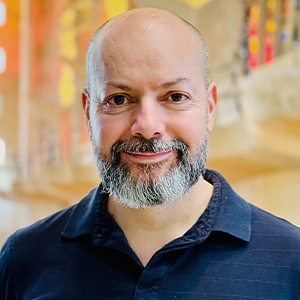
Rod Solar
Founder & Scalable Business Advisor
For over 20 years, I’ve helped ophthalmology entrepreneurs scale their private practices. I specialise in doubling revenue within three years by offering a proven framework, hands-on experience, and a team of experts who implement what works. We take the guesswork out of growth and scale, so you can focus on delivering exceptional patient care while maximising the value of your business.
LiveseySolar completely transformed the way we were approaching this… We’ve gone from having just the dream of having a practice to having a practice up and running with people making inquiries and booking for procedures… It’s extremely pleasing. We feel lucky we connected with LiveseySolar.
— Dr Matthew Russell, MBChB, FRANZCO, specialist ophthalmic surgeon and founder of VSON and OKKO

Laura Livesey
Founder & CEO
I’m the co-founder & CEO of LiveseySolar. I’ve developed powerful eye surgery marketing systems that increase patient volumes and profits for doctors, clinics, and hospitals, since 1997.
Rod and Laura know as much about marketing surgery to patients as I know about performing it. They are an expert in the field of laser eye surgery marketing. They know this industry inside out. I believe that they could help many companies in a variety of areas including marketing materials, sales training and marketing support for doctors.
— Prof. Dan Reinstein, MD MA FRSC DABO, founder of the London Vision Clinic, UK


